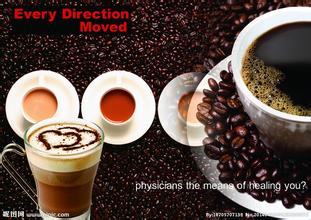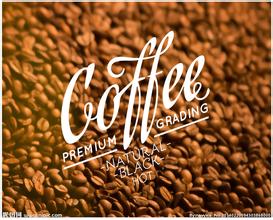Coffee Solarization and Washing Flavor Description Taste Manor Region Variety Introduction
Coffee Solarization and Washing Flavor Description Taste Manor Area Variety Introduction
This method is extremely common in Brazil. Natural washing is very similar to water washing, except that natural washing removes the mucous membrane from the coffee surface with a high-pressure washing machine, thus skipping the fermentation process. Several green coffee processing companies in Brazil and Colombia have patented the method and become local natural water processing monopolies. This method uses much less water than shampoo, so some people are accustomed to calling it "Semi-Dry". Since coffee beans are not fermented, there is no (or only a very low) risk of fermentation, and the overall quality of coffee is more constant. Unfortunately, coffee tends to be bland because it is not fermented. Therefore, growers do not use natural washing methods for ultra-high quality coffee seeds. Most green bean purchasing companies also rarely buy coffee that has been processed by natural washing
Washing method: the use of washing and fermentation methods to remove the peel pulp and mucosa. This method is also known as "Fully washed". Shampoo is the most common way to treat Arabica coffee beans in most of the world's coffee-producing countries. In some areas, advanced high-pressure washers are used to clean the skin, pulp and mucosa of coffee beans, so fermentation is no longer required. This method of treating coffee beans with a high-pressure washing machine is called Pulped Natural. This method of treatment is the simplest. The fruit begins the sun drying process without treatment after picking. This is the oldest treatment in existence. This method is still used today in places such as Ethiopia and Brazil. Natural solarization is most common in areas where water is scarce. The drying process usually lasts about 4 weeks. The treatment must be very careful to ensure that the coffee does not lose any flavor. Natural solarization requires an extremely dry local climate. In some areas, people use dryers to assist in the drying process of coffee fruits (the hot air of the dryer can speed up the drying process and help people control the drying degree).
Natural solarization preserves the fruity aromas of the coffee fruit. When you taste this coffee, you will find that the coffee is full of fruit aroma and the taste is brighter. After drying, special machines are used to remove the outer crust. This process is called Dry Milling.

Important Notice :
前街咖啡 FrontStreet Coffee has moved to new addredd:
FrontStreet Coffee Address: 315,Donghua East Road,GuangZhou
Tel:020 38364473
- Prev

How to make a good quality video of foam and flower drawing.
How to make a good quality foam pull video steam pipe steam mode, mainly divided into: external expansion type and centralized type two. Different forms of steam pipe, the steam intensity and steam output will be different, coupled with the change of the position of the outlet hole and the number of holes, it will cause the difference between the angle and the way when milking. On the other hand, the expanded steam pipe is not allowed to dispense the milk.
- Next

Sulawesi coffee beans processing method sun washing red honey-processing plant cooperative introduction
Sulawesi Coffee Bean Processing Method Sun-washed Red Honey-Processing Plant Cooperative Introduction Ethiopia is an agricultural country with a history and tradition that can be called the origin of coffee. The origin of the name coffee is believed to be Kafa in the southwest, while the Hitomo region in the south is the main place of origin. Eastern Highlands Harrah, also known as Harrah's Coffee, some say it's the only coffee
Related
- What is the meaning of lactic acid fermentation with coffee bean treatment?
- How to judge the state of foam by sound?
- How does the latte pull out the unicorn pattern? Come to get for a little trick to improve the flower pull!
- Will flower pulling affect the taste of the latte?
- Do you know the history of coffee?
- The difference between honey treatment and sun washing what is raisin honey treatment?
- What kind of milk can a novice use to make coffee foam to keep the foam longer? The correct method and skills of milking tutorial sharing
- Why do washed coffee beans taste sour? Flavor characteristics of washed Coffee
- Introduction to the skill of how to practice the size and height of water injection around the circle of hand-brewed coffee
- How do beginners practice coffee flower drawing from scratch?

